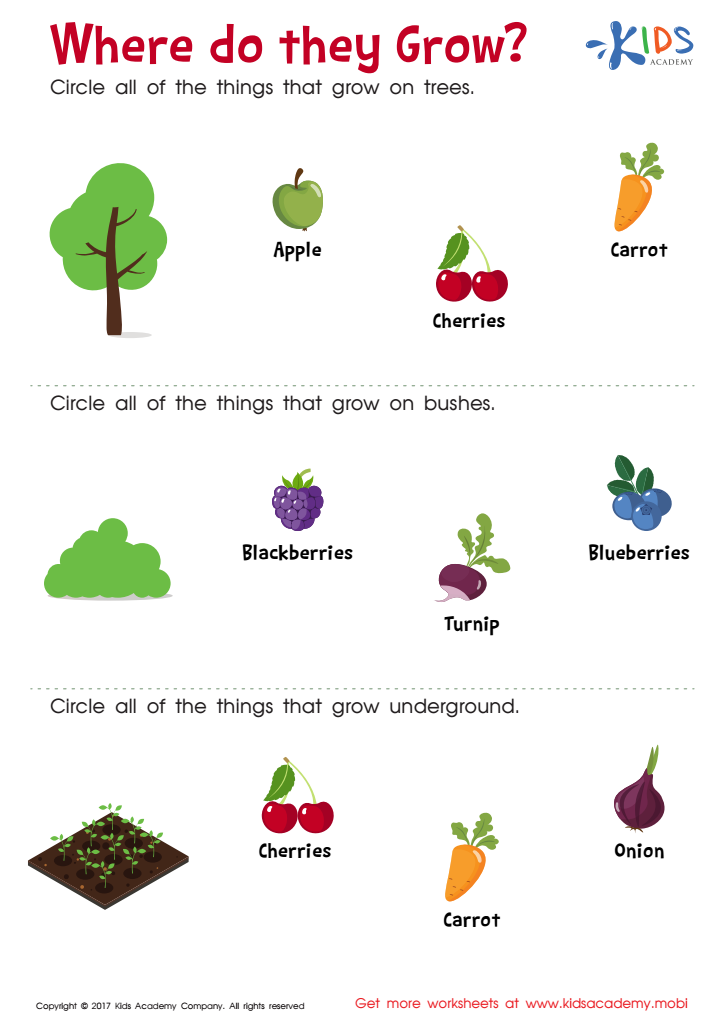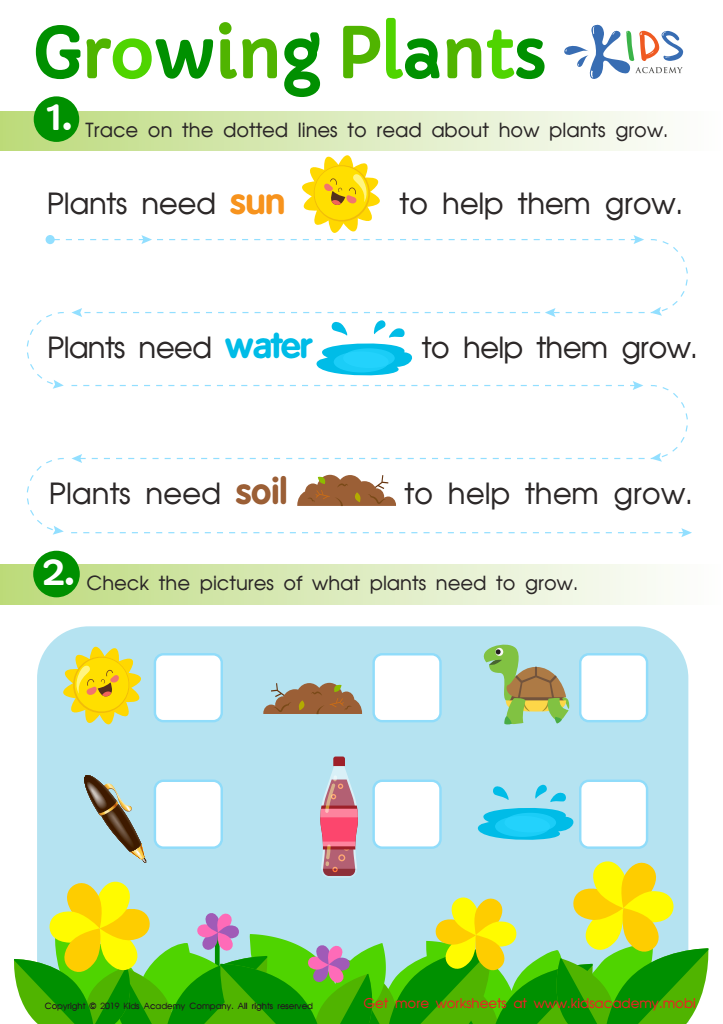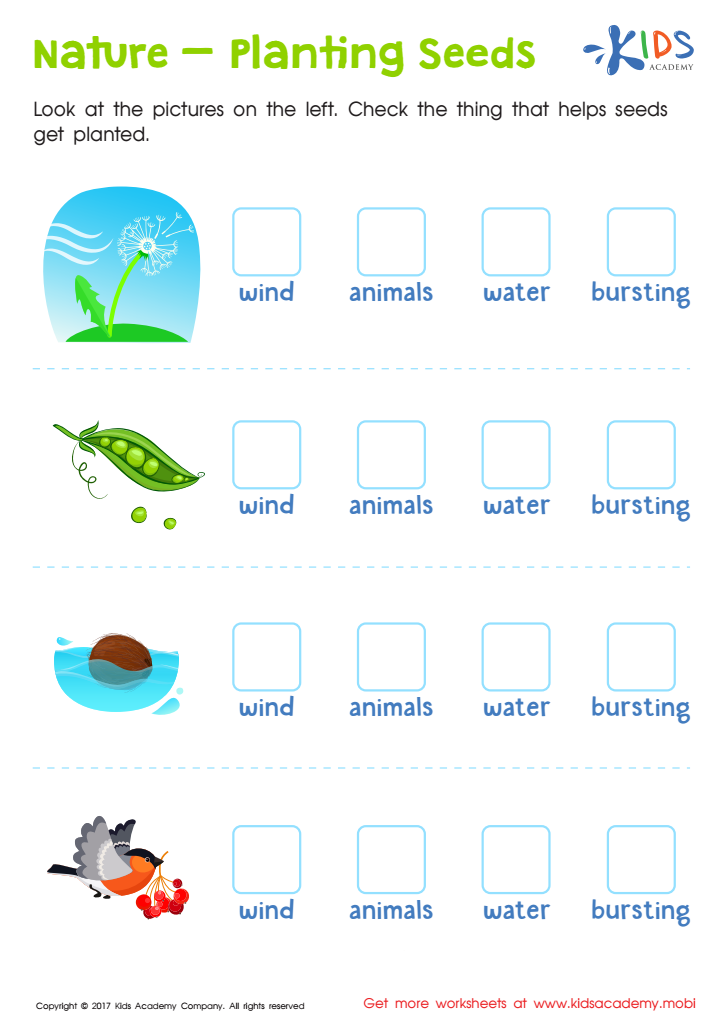Understanding plant growth Normal Worksheets for Ages 6-9
3 filtered results
-
From - To
Explore our engaging "Understanding Plant Growth" worksheets designed for children aged 6-9! These printable resources make learning about plants fun and interactive, offering young learners a chance to discover how plants grow, the importance of sunlight, water, and soil, and the different stages of growth. Perfect for early grade classrooms or homeschooling activities, these worksheets encourage critical thinking and creativity while enhancing science skills. Each worksheet includes colorful illustrations and easy-to-follow instructions to capture kids' interest. Get ready to nurture a love for nature and science as your child investigates the fascinating world of plants!


Where Do They Grow Worksheet


Growing Plants Worksheet


Nature Planting Seeds Worksheet
Understanding plant growth is vital for parents and teachers because it serves as a gateway to fostering a child's curiosity about the natural world while promoting essential life skills. For children aged 6-9, learning about how plants grow encourages observation, inquiry, and critical thinking. It brings science to life, making abstract concepts tangible and engaging.
By exploring plant growth, children develop a sense of responsibility as they learn to care for living things. Whether nurturing a small seedling or tending to a garden, they experience the importance of nurturing through patience, consistency, and observation. This hands-on learning enhances cognitive development, fine motor skills, and social collaboration, particularly during group activities.
Furthermore, understanding plant growth lays the foundation for awareness about ecosystems, biodiversity, and environmental awareness. As children learn about the role of plants in sustaining life, they begin to appreciate their interconnectedness in the planet's health. This knowledge can inspire a lifelong interest in nature and science.
Overall, promoting knowledge of plant growth is not only about fostering academic skills but also about nurturing empathetic, environmentally-conscious individuals who value the importance of sustainability and care in their world.
 Assign to My Students
Assign to My Students















